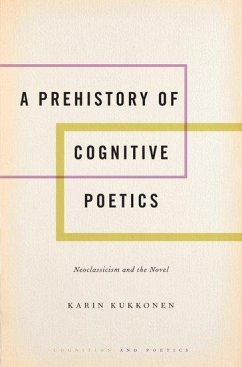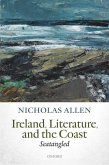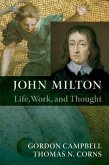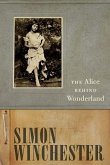- Gebundenes Buch
- Merkliste
- Auf die Merkliste
- Bewerten Bewerten
- Teilen
- Produkt teilen
- Produkterinnerung
- Produkterinnerung
Carrying neoclassicism back into today's critical debates, this study considers the cognitive underpinnings of the rules of poetic justice, the unities and decorum, underlines their relevance for today's cognitive poetics and traces their influence in the emerging narrative form of the eighteenth-century novel.
Andere Kunden interessierten sich auch für
![Ireland, Literature, and the Coast Ireland, Literature, and the Coast]() Nicholas AllenIreland, Literature, and the Coast131,99 €
Nicholas AllenIreland, Literature, and the Coast131,99 €![Cognitive Poetic Readings in Elizabeth Bishop Cognitive Poetic Readings in Elizabeth Bishop]() Elzbieta Wójcik-LeeseCognitive Poetic Readings in Elizabeth Bishop141,99 €
Elzbieta Wójcik-LeeseCognitive Poetic Readings in Elizabeth Bishop141,99 €![Liberty and Poetics in Eighteenth Century England Liberty and Poetics in Eighteenth Century England]() Michael MeehanLiberty and Poetics in Eighteenth Century England160,99 €
Michael MeehanLiberty and Poetics in Eighteenth Century England160,99 €![John Milton John Milton]() Gordon CampbellJohn Milton33,99 €
Gordon CampbellJohn Milton33,99 €![The Alice Behind Wonderland The Alice Behind Wonderland]() Simon WinchesterThe Alice Behind Wonderland19,99 €
Simon WinchesterThe Alice Behind Wonderland19,99 €![The Oxford Concise Companion to English Literature The Oxford Concise Companion to English Literature]() The Oxford Concise Companion to English Literature25,99 €
The Oxford Concise Companion to English Literature25,99 €![The Oxford Companion to the Brontes The Oxford Companion to the Brontes]() Christine AlexanderThe Oxford Companion to the Brontes42,99 €
Christine AlexanderThe Oxford Companion to the Brontes42,99 €-
-
-
Carrying neoclassicism back into today's critical debates, this study considers the cognitive underpinnings of the rules of poetic justice, the unities and decorum, underlines their relevance for today's cognitive poetics and traces their influence in the emerging narrative form of the eighteenth-century novel.
Hinweis: Dieser Artikel kann nur an eine deutsche Lieferadresse ausgeliefert werden.
Hinweis: Dieser Artikel kann nur an eine deutsche Lieferadresse ausgeliefert werden.
Produktdetails
- Produktdetails
- Verlag: Oxford University Press
- Seitenzahl: 288
- Erscheinungstermin: 3. April 2017
- Englisch
- Abmessung: 236mm x 163mm x 30mm
- Gewicht: 522g
- ISBN-13: 9780190634766
- ISBN-10: 0190634766
- Artikelnr.: 47867202
- Herstellerkennzeichnung
- Libri GmbH
- Europaallee 1
- 36244 Bad Hersfeld
- gpsr@libri.de
- Verlag: Oxford University Press
- Seitenzahl: 288
- Erscheinungstermin: 3. April 2017
- Englisch
- Abmessung: 236mm x 163mm x 30mm
- Gewicht: 522g
- ISBN-13: 9780190634766
- ISBN-10: 0190634766
- Artikelnr.: 47867202
- Herstellerkennzeichnung
- Libri GmbH
- Europaallee 1
- 36244 Bad Hersfeld
- gpsr@libri.de
Karin Kukkonen is Professor in Comparative Literature at the University of Oslo. She is a specialist in cognitive approaches to literature and narratology. She has published on comics and graphic novels (Contemporary Comics Storytelling, 2013), embodied and probabilistic cognitive approaches to literary narrative, as well as on the eighteenth-century novel. From 2010-2013, she was a Balzan Postdoctoral Research Fellow at St John's College, University of Oxford.
* Acknowledgements
* Preface
* Chapter 1: Neoclassical Poetics and the Rise of the Novel
* 1.1 Beating the Bounds of the Rules in Incognita
* 1.2 Manners, Passions, Unities
* 1.3 Neoclassicism and the Sciences
* Chapter 2. The Situational Logic of Vraisemblance
* 2.1. Cognitive Moves
* 2.2. Successful Solutions
* 2.3. Vraisemblance Now
* I: Poetic Justice
* Chapter 3: Samuel Richardson and the Project of Poetic Justice
* 3.1. Virtue Rewarded
* 3.2. Altruistic Punishers in B-Hall
* 3.3 Pamela - Shamela - Anti-Pamela
* Chapter 4: The Trials of Clarissa
* 4.1 Editing the Social Contract
* 4.2 Lovelace's Happy Endings
* 4.3. Poetic Justice at the Limits
* Chapter 5: Ann Radcliffe and the Abdication of the Superpunisher
* 5.1 Comeuppance Clockworks
* 5.2 Enter the Uncanny
* 5.3 The Supernatural and Superpunishers
* II: The Unities
* Chapter 6: The Best Possible Storyworld: Johnson's Rasselas
* 6.1 Rasselas, the Imagination and the Unities
* 6.2 Event Cognition, Spatialization and the Conceptual Shape of the
Storyworld
* 6.3 Closure in Abissinia
* Chapter 7: Utopian Reasoning in Mercier's L'An 2440 and Madden's
Memoirs of the Twentieth Century
* 7.1 Poetics and Politics
* 7.2 The Cognitive Estrangements of Utopia
* 7.3 The Idea of Progress and Intertemporal Bargaining in Utopian
Fiction
* 7.4 A Unified Utopia
* Chapter 8: The Dramatic Passages of The Castle of Otranto
* 8.1. Where the Bodies Are
* 8.2 The Return of Racine
* 8.3 Embodied Experience in the Novel
* III: Decorum
* Chapter 9. Henry Fielding's Probability Design
* 9.1 9.2 Decorum and Surprise
* 9.3 A Hero
* Chapter 10. The Female Quixote and the Probability of Romance
* 10.1. The Querelle de Miss Groves
* 10.2 Educating Readers
* 10.3 Arabella's Wager
* Chapter 11. John Cleland vs. the Novel
* 11.1. Building a Social World in Mrs Mercier's Academy
* 11.2. The Predictable Novel
* 11.3. Love, Duty and the End of Curiosity
* Conclusion: Explorations in the Prehistory of Cognitive Poetics
* Bibliography
* Preface
* Chapter 1: Neoclassical Poetics and the Rise of the Novel
* 1.1 Beating the Bounds of the Rules in Incognita
* 1.2 Manners, Passions, Unities
* 1.3 Neoclassicism and the Sciences
* Chapter 2. The Situational Logic of Vraisemblance
* 2.1. Cognitive Moves
* 2.2. Successful Solutions
* 2.3. Vraisemblance Now
* I: Poetic Justice
* Chapter 3: Samuel Richardson and the Project of Poetic Justice
* 3.1. Virtue Rewarded
* 3.2. Altruistic Punishers in B-Hall
* 3.3 Pamela - Shamela - Anti-Pamela
* Chapter 4: The Trials of Clarissa
* 4.1 Editing the Social Contract
* 4.2 Lovelace's Happy Endings
* 4.3. Poetic Justice at the Limits
* Chapter 5: Ann Radcliffe and the Abdication of the Superpunisher
* 5.1 Comeuppance Clockworks
* 5.2 Enter the Uncanny
* 5.3 The Supernatural and Superpunishers
* II: The Unities
* Chapter 6: The Best Possible Storyworld: Johnson's Rasselas
* 6.1 Rasselas, the Imagination and the Unities
* 6.2 Event Cognition, Spatialization and the Conceptual Shape of the
Storyworld
* 6.3 Closure in Abissinia
* Chapter 7: Utopian Reasoning in Mercier's L'An 2440 and Madden's
Memoirs of the Twentieth Century
* 7.1 Poetics and Politics
* 7.2 The Cognitive Estrangements of Utopia
* 7.3 The Idea of Progress and Intertemporal Bargaining in Utopian
Fiction
* 7.4 A Unified Utopia
* Chapter 8: The Dramatic Passages of The Castle of Otranto
* 8.1. Where the Bodies Are
* 8.2 The Return of Racine
* 8.3 Embodied Experience in the Novel
* III: Decorum
* Chapter 9. Henry Fielding's Probability Design
* 9.1 9.2 Decorum and Surprise
* 9.3 A Hero
* Chapter 10. The Female Quixote and the Probability of Romance
* 10.1. The Querelle de Miss Groves
* 10.2 Educating Readers
* 10.3 Arabella's Wager
* Chapter 11. John Cleland vs. the Novel
* 11.1. Building a Social World in Mrs Mercier's Academy
* 11.2. The Predictable Novel
* 11.3. Love, Duty and the End of Curiosity
* Conclusion: Explorations in the Prehistory of Cognitive Poetics
* Bibliography
* Acknowledgements
* Preface
* Chapter 1: Neoclassical Poetics and the Rise of the Novel
* 1.1 Beating the Bounds of the Rules in Incognita
* 1.2 Manners, Passions, Unities
* 1.3 Neoclassicism and the Sciences
* Chapter 2. The Situational Logic of Vraisemblance
* 2.1. Cognitive Moves
* 2.2. Successful Solutions
* 2.3. Vraisemblance Now
* I: Poetic Justice
* Chapter 3: Samuel Richardson and the Project of Poetic Justice
* 3.1. Virtue Rewarded
* 3.2. Altruistic Punishers in B-Hall
* 3.3 Pamela - Shamela - Anti-Pamela
* Chapter 4: The Trials of Clarissa
* 4.1 Editing the Social Contract
* 4.2 Lovelace's Happy Endings
* 4.3. Poetic Justice at the Limits
* Chapter 5: Ann Radcliffe and the Abdication of the Superpunisher
* 5.1 Comeuppance Clockworks
* 5.2 Enter the Uncanny
* 5.3 The Supernatural and Superpunishers
* II: The Unities
* Chapter 6: The Best Possible Storyworld: Johnson's Rasselas
* 6.1 Rasselas, the Imagination and the Unities
* 6.2 Event Cognition, Spatialization and the Conceptual Shape of the
Storyworld
* 6.3 Closure in Abissinia
* Chapter 7: Utopian Reasoning in Mercier's L'An 2440 and Madden's
Memoirs of the Twentieth Century
* 7.1 Poetics and Politics
* 7.2 The Cognitive Estrangements of Utopia
* 7.3 The Idea of Progress and Intertemporal Bargaining in Utopian
Fiction
* 7.4 A Unified Utopia
* Chapter 8: The Dramatic Passages of The Castle of Otranto
* 8.1. Where the Bodies Are
* 8.2 The Return of Racine
* 8.3 Embodied Experience in the Novel
* III: Decorum
* Chapter 9. Henry Fielding's Probability Design
* 9.1 9.2 Decorum and Surprise
* 9.3 A Hero
* Chapter 10. The Female Quixote and the Probability of Romance
* 10.1. The Querelle de Miss Groves
* 10.2 Educating Readers
* 10.3 Arabella's Wager
* Chapter 11. John Cleland vs. the Novel
* 11.1. Building a Social World in Mrs Mercier's Academy
* 11.2. The Predictable Novel
* 11.3. Love, Duty and the End of Curiosity
* Conclusion: Explorations in the Prehistory of Cognitive Poetics
* Bibliography
* Preface
* Chapter 1: Neoclassical Poetics and the Rise of the Novel
* 1.1 Beating the Bounds of the Rules in Incognita
* 1.2 Manners, Passions, Unities
* 1.3 Neoclassicism and the Sciences
* Chapter 2. The Situational Logic of Vraisemblance
* 2.1. Cognitive Moves
* 2.2. Successful Solutions
* 2.3. Vraisemblance Now
* I: Poetic Justice
* Chapter 3: Samuel Richardson and the Project of Poetic Justice
* 3.1. Virtue Rewarded
* 3.2. Altruistic Punishers in B-Hall
* 3.3 Pamela - Shamela - Anti-Pamela
* Chapter 4: The Trials of Clarissa
* 4.1 Editing the Social Contract
* 4.2 Lovelace's Happy Endings
* 4.3. Poetic Justice at the Limits
* Chapter 5: Ann Radcliffe and the Abdication of the Superpunisher
* 5.1 Comeuppance Clockworks
* 5.2 Enter the Uncanny
* 5.3 The Supernatural and Superpunishers
* II: The Unities
* Chapter 6: The Best Possible Storyworld: Johnson's Rasselas
* 6.1 Rasselas, the Imagination and the Unities
* 6.2 Event Cognition, Spatialization and the Conceptual Shape of the
Storyworld
* 6.3 Closure in Abissinia
* Chapter 7: Utopian Reasoning in Mercier's L'An 2440 and Madden's
Memoirs of the Twentieth Century
* 7.1 Poetics and Politics
* 7.2 The Cognitive Estrangements of Utopia
* 7.3 The Idea of Progress and Intertemporal Bargaining in Utopian
Fiction
* 7.4 A Unified Utopia
* Chapter 8: The Dramatic Passages of The Castle of Otranto
* 8.1. Where the Bodies Are
* 8.2 The Return of Racine
* 8.3 Embodied Experience in the Novel
* III: Decorum
* Chapter 9. Henry Fielding's Probability Design
* 9.1 9.2 Decorum and Surprise
* 9.3 A Hero
* Chapter 10. The Female Quixote and the Probability of Romance
* 10.1. The Querelle de Miss Groves
* 10.2 Educating Readers
* 10.3 Arabella's Wager
* Chapter 11. John Cleland vs. the Novel
* 11.1. Building a Social World in Mrs Mercier's Academy
* 11.2. The Predictable Novel
* 11.3. Love, Duty and the End of Curiosity
* Conclusion: Explorations in the Prehistory of Cognitive Poetics
* Bibliography








